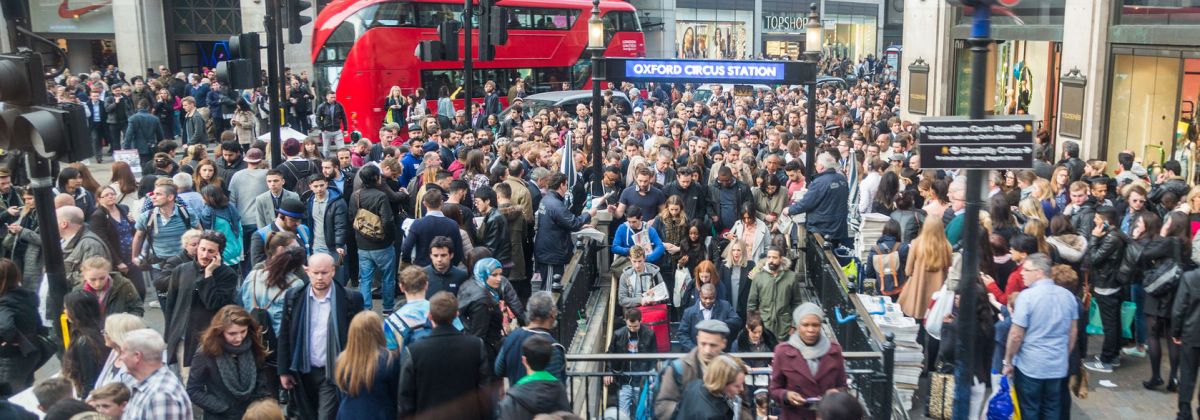A soft Brexit would mean mass immigration – of over 100,000 people a year net until the late 2030s

By Lord Green of Deddington
Chairman of Migration Watch UK
Conservative Home, 17 July, 2017
Talk of a “soft” Brexit, sometimes dressed up as a “Brexit for jobs” or for “prioritising the needs of the economy” is thoroughly misleading. In practice it can only mean continued membership of the Single Market. That, in turn, would mean continued free movement, continued jurisdiction for the European Court of Justice (ECJ) and indefinite payments into the EU budget.
We would thus lose all ability to influence the laws and regulations to which we would remain subject for the indefinite future. Brexit on these terms would be self-defeating. Perhaps it is the prospect of just such an outcome to the negotiations that determined Remainers are seeking to engineer in the hope that the public might be persuaded to change their minds in some further referendum or election.
Part of any such strategy seems to be to label the Government’s approach as a “hard” Brexit: not so. The Government’s policy is clear and logical. It aims to deliver control over our borders, our laws and our money – as foreshadowed in the referendum campaign itself. The key distinction is between membership of the Single Market and access to the EU market for goods and services. The former entails the drawbacks outlined above, whereas access to EU markets can be negotiated by means of an exchange of trade concessions by both sides. Indeed, South Korea, Canada and the Ukraine have reached trade agreements with the EU that contain no provisions for free movement.
It seems that the Government is now signed up to the objective of access for trade rather than membership of the Single Market, albeit with concerns expressed by the Chancellor about the feasibility of getting the trade negotiation sorted in the time available. Hence talk of a “transitional period” or an “implementation period” for trade matters which might also embrace implementation of a new immigration system. This is a perfectly reasonable approach which should be acceptable to EU partners, who surely have no interest in the dislocation of trade with one of their largest markets.
Nevertheless, there remains a risk that the negotiation might reach deadlock towards the end of this year, either on the jurisdiction of the ECJ or on what payments should be made to satisfy the UK’s continuing financial obligations. This could result in the UK leaving with no agreements in place, and reverting to trade on WTO terms. That is the true meaning of a “hard” Brexit.
So let us not be misled by the cosy adjective “soft”. “Hard” and “soft” are not the options. Talk of a “soft” Brexit is cover for determined remainers and for financial interests that dislike the referendum result and seek to manoeuvre in the hope of reversing it.
Any suggestion that a Norwegian-style emergency brake within the European Economic Area would allow the UK to control levels of migration is simply false. The reality is that this was designed as a strictly temporary measure. Norway does not have full control of the brake – and, indeed, has never used it for fear of retaliation.
There is a great deal at stake: namely, the continuation of massive levels of immigration from the EU into the foreseeable future. There is no sign that the incentives of higher wages and the greater availability of employment in the UK, which have led to record levels of EU net migration, have diminished.
Romania’s minimum wage is still a fifth of the level of the UK’s, and the OECD predicts that there will be no convergence of UK and East European wages in the next 20 years. We could be looking at continued net inflows from the EU of well over 100,000 a year until the late 2030s.
In this case, overall net migration could well continue at around the ONS population projection’s high migration scenario of 265,000 a year. That would mean the UK’s population growing by just over 11 million by 2039 – two thirds of which would be the result of the direct and indirect effects of immigration. An increase on that scale would be the equivalent of adding a population nearly the size of the city of Birmingham every two years.
Even these huge numbers take no account of the recent revelation by their former Head of Enforcement that the Home Office have kept secret their estimates of illegal immigration which range from 150-250,000 per year, many of whom will have entered illegally and will therefore add to net migration.
We are now at the point where the whole scale and even nature of our population risks spinning out of control. The government must, therefore, keep their nerve. There really is no alternative.
